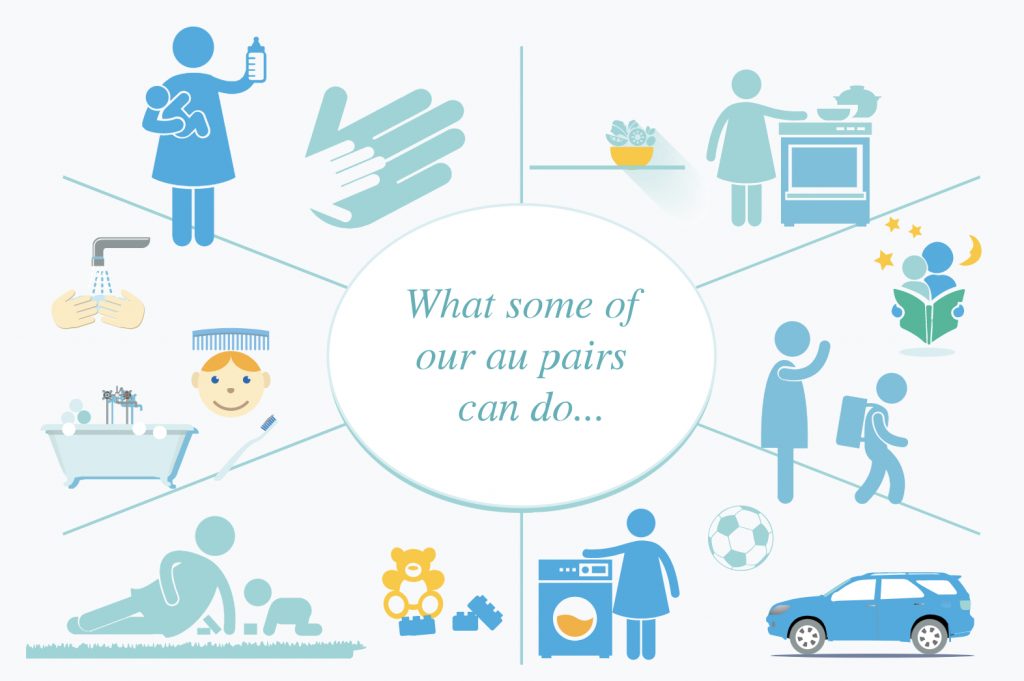
Exploring the Role of Au Pairs in Australia
What exactly does an au pair do?
Far from being just a caretaker, an au pair plays a multifaceted role, encompassing childcare, cultural exchange, and personal development. Let’s dive deep into the daily life and responsibilities of an au pair.
1. Childcare: The Heart of the Role
At its core, an au pair program revolves around childcare, making it the primary duty of an au pair. This involves:
- Routine Care: From dressing up children to setting them into bed, au pairs assist in the day-to-day routines.
- Meal Preparation: Au pairs often help prepare and serve meals for the kids, ensuring they’re fed and nourished.
- Education Support: They might help children with homework, read them stories, or introduce them to new learning activities.
- Recreational Activities: Playing games, crafting, or outdoor activities, au pairs keep children engaged and active.
- Safety Assurance: Ensuring children are safe at all times, be it at home, in the park, or during an outing.
2. Light Household Duties
While the primary focus is childcare, au pairs often assist with chores directly related to the children:
- Tidying Up: This involves cleaning up after play sessions or meals.
- Children’s Laundry: Washing, drying, and organizing the children’s clothes.
- Maintaining Children’s Rooms: Keeping spaces tidy and in order.
However, it’s vital to note that an au pair is not a housemaid; they are primarily there for childcare.
3. Fostering Cultural Exchange
Being an au pair in Australia transcends mere job duties; it’s a cultural immersion:
- Language Sharing: Au pairs often teach the host children snippets of their language, songs, or stories.
- Tradition Introduction: Festivals, cuisines, and customs from the au pair’s homeland find their way into the host family’s life.
- Learning from the Host: Au pairs also immerse themselves in the host country’s culture, picking up nuances, traditions, and lifestyle habits.
4. Engaging in Personal Growth
Outside their duties, au pairs in Australia have the chance to develop personally:
- Education: Many choose to attend courses, often related to language or a personal interest.
- Travel & Exploration: Being in a new country, au pairs often travel during their free time, expanding their horizons.
- Building Networks: Social events, meetups with fellow au pairs, or local groups help them forge new friendships.
5. Abiding by Program Guidelines
Au pairs also operate within a framework of rules:
- Work Hours: There’s often a maximum cap on weekly working hours.
- Rest and Relaxation: Au pairs are entitled to breaks, ensuring they aren’t overworked.
- Compensation: They receive a stipend or pocket money, which is in line with the host country’s guidelines.
Conclusion
Being an au pair in Australia is a rich, rewarding experience, amalgamating responsibilities with opportunities. From being caretakers to cultural ambassadors, from learners to teachers, au pairs juggle diverse roles, enriching not only their lives but also those of the families they become a part of.
The role of an au pair is multifaceted, encompassing duties related to childcare, household assistance, and cultural exchange. The experience provides au pairs with the opportunity to immerse themselves in a new culture while offering families a unique perspective from another part of the world. Proper understanding and open communication between the host family and the au pair are vital to ensuring a fulfilling experience for both parties.


